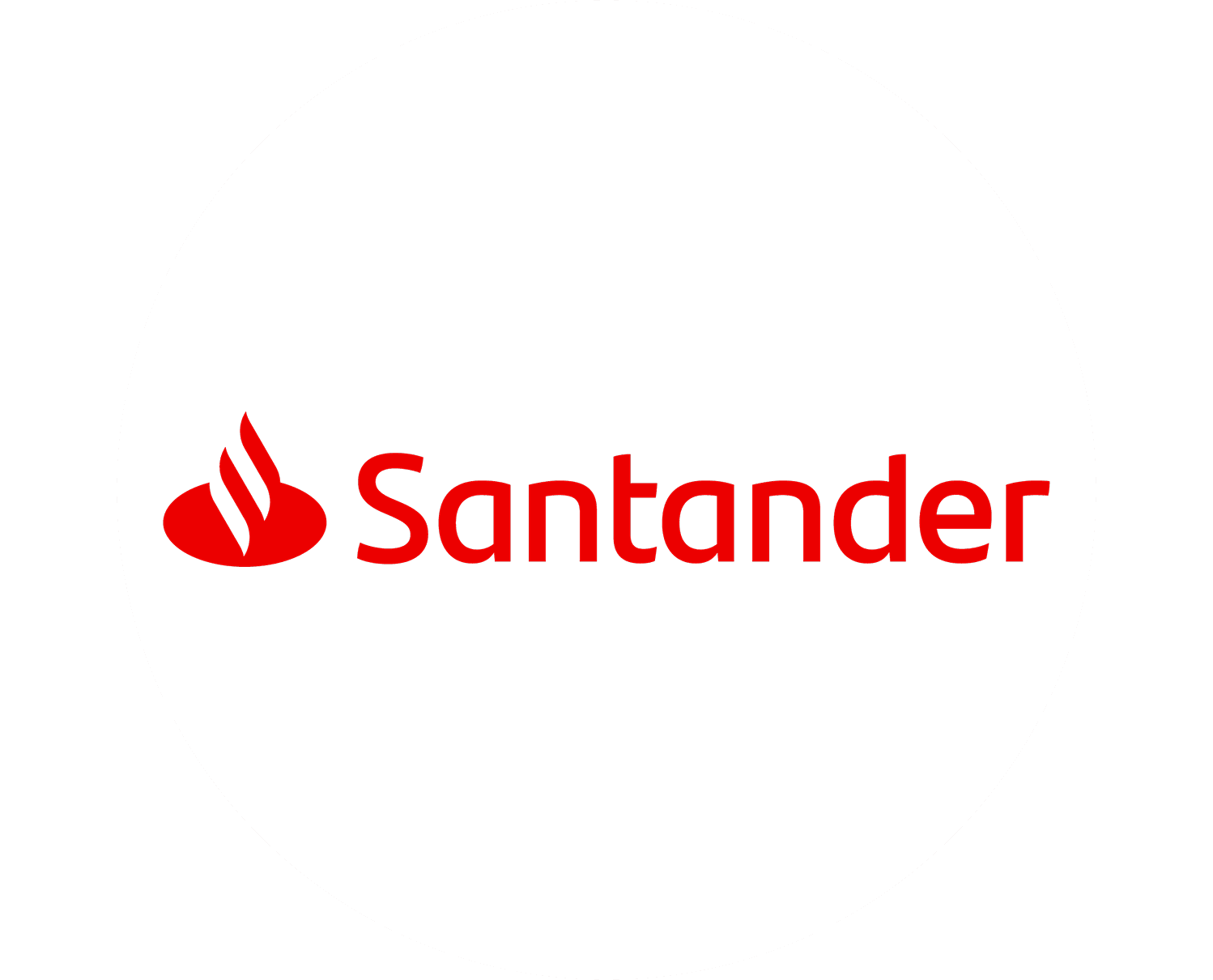
Drive Scope 3 reductions through supplier finance
 Vestas
Vestas Santander
Santander总结
Engages suppliers through a sustainability assessment and finance-linked incentives to advance supply chain decarbonization and ESG performance
Context
Vestas, a global leader in sustainable energy solutions, designs, manufactures, installs, and services wind turbines worldwide. The company aims to achieve net-zero emissions across its full value chain by 2040, with a strong focus on reducing Scope 3 emissions, which account for the majority of its carbon footprint. A large share of these emissions arises from suppliers involved in manufacturing turbine components and delivering related services.
To address this challenge, Vestas partnered with Santander Brasil to launch a supply chain finance program that links preferential credit conditions to suppliers’ sustainability performance. The program is supported by Ecovadis, which conducts independent assessments of suppliers across 21 environmental, social, and governance (ESG) criteria.
This initiative forms part of Vestas’ broader decarbonization strategy to embed sustainability in procurement decisions, build supplier capability, and advance low-carbon development within the renewable energy value chain in Brazil. For Santander, the partnership contributes to expanding its sustainable finance portfolio and supporting clients in accelerating emissions reduction across their supply chains.
Location of the initiative: Brazil
Solution
Vestas implemented a supply chain finance program in partnership with Santander to strengthen supplier sustainability performance and advance Scope 3 emissions reduction. The program connects preferential credit conditions to the results of a sustainability assessment conducted by Ecovadis, which evaluates suppliers against 21 environmental, social, and governance (ESG) criteria.
The assessment provides each supplier with a score and recommendations for improvement. Based on their progress, suppliers gain access to improved financing terms through Santander’s receivables anticipation program. This structure incentivizes continuous ESG advancement while providing tangible financial benefits.
Through this collaboration, Vestas supports its suppliers in developing robust sustainability agendas aligned with its decarbonization strategy, while Santander expands its sustainable finance portfolio and contributes to positive environmental and social outcomes across Brazil’s renewable energy value chain.
Impact
Sustainability impact
Climate
The initiative targets Scope 3 emissions (Category 1: Purchased Goods and Services), which represent the majority of Vestas’ total value chain footprint. By linking supplier financing conditions to sustainability performance, the program enables measurable improvements in suppliers’ environmental practices, indirectly reducing greenhouse gas emissions associated with turbine component production. Within six months of launch, 60% of Vestas’ local suppliers joined the program, and 15% completed sustainability assessments, marking early progress toward supply chain decarbonization.
Nature
Although indirect, the initiative promotes better environmental management practices among suppliers—such as responsible sourcing, resource efficiency, and waste reduction—which collectively reduce negative impacts on ecosystems and natural resources. As suppliers advance their sustainability agendas, these improvements support the broader renewable energy value chain’s contribution to nature-positive outcomes.
Social
The program strengthens supplier capacity and awareness of ESG performance, creating long-term social benefits through better labor practices, transparency, and inclusion in sustainable financing opportunities. It fosters collaboration between Vestas, its suppliers, and Santander, empowering local businesses to align with global sustainability standards while improving access to affordable credit.
Business impact
Benefits
For Vestas, the initiative enhances supply chain resilience and transparency while accelerating progress toward its 2040 net-zero target. By linking sustainability assessments with financing conditions, Vestas gains deeper insight into supplier performance, helping identify high-impact areas for Scope 3 reduction and supplier development. The program also strengthens relationships with strategic suppliers and supports procurement decisions based on verified ESG data, reducing long-term operational and reputational risk.
For Santander Brasil, the partnership expands its sustainable finance portfolio and demonstrates how financial innovation can drive real-economy decarbonization. The initiative allows Santander to build new relationships within the renewable energy sector, position itself as a key enabler of climate transition, and scale similar models across other industrial value chains.
Costs
The costs of the program are related to participation in the assessment program led by Ecovadis and the cost of assessing suppliers. The cost benefits related to the progress of suppliers' sustainability agendas are agreed between the bank and the client when developing the initiative.
One of the main challenges in implementing the initiative is related to the cost of the program for the customer and suppliers.
Impact beyond sustainability and business
Co-benefits
The initiative was further proof of the long-standing relationship between Vestas and Santander, as well as the advancement of Santander’s sustainable finance portfolio in Brazil, in addition to being a pilot operation for other initiatives of the same kind.
This initiative could also serve as a catalyst for other customers in the energy sector or other sectors interested in developing their suppliers' sustainability agenda, as well as indirectly developing their own agendas. In addition to serving as an example for suppliers interested in participating in this type of program, it encourages the advancement of their best practices and allows access to better credit terms.
Implementation
Typical business profile
The initiative should be aimed for customers in any sector or activity who already have a certain level of maturity in this area and who already have some kind of approach to the issue with their suppliers, so that both are able to participate in the program in the best possible way. It is important that the customer ensures the engagement of its suppliers both with the program and with the response to the assessment of sustainability criteria in a correct and transparent manner.The program should be ambitious in terms of the customer's sustainability agenda so that it also drives development with their suppliers. The initiative can involve both local suppliers and a global chain, as long as the assessment is carried out in a uniform manner and all suppliers have access to the same conditions.
Approach
The program was developed jointly by Vestas and Santander Brasil to strengthen supplier engagement and link financing benefits to sustainability performance. Implementation followed a structured process:
Supplier Mapping and Outreach – Vestas identified key local suppliers in Brazil with significant contributions to its Scope 3 footprint and invited them to participate in the sustainable supply chain finance program.
Assessment and Benchmarking – Each participating supplier underwent an Ecovadis sustainability evaluation covering 21 environmental, social, and governance (ESG) criteria. The assessment provided a baseline score and a tailored improvement plan.
Financing Integration – Santander Brasil connected the Ecovadis results to its receivables anticipation program. Suppliers demonstrating stronger ESG performance, or showing progress over time, gained access to preferential credit terms.
Capacity Building and Monitoring – Vestas engaged with suppliers to review assessment feedback, share sustainability guidance, and encourage continuous improvement. The results were tracked to monitor participation rates and ESG progress.
The model embeds sustainability incentives directly within financial processes, creating shared value for all participants. It also demonstrates how banks and manufacturers can collaborate to advance climate and social goals across value chains.
Stakeholders involved
Santander Brasil was the sole lender and sustainability structurer of the program, through its commercial and sustainable finance teams. Vestas’ financial and supply chain teams were also part of the structuring, with the help of Ecovadis, which approaches and evaluates suppliers. Suppliers were approached directly by Vestas.
Key parameters to consider
The initiative is a new alternative for promoting the supply chain sustainability agenda, allowing companies to engage their suppliers on the issue and indirectly impacting their own sustainability agendas.
There is no deadline for completing the program, but it is important that suppliers be periodically reevaluated to monitor the progress of their agendas and adjust access to credit conditions linked to good sustainability practices.
It is also important to engage new suppliers for the program's growth and to encourage new initiatives of the same kind.
Implementation and operations tips
The main challenges in implementing the initiative are related to the cost of the program for the company and suppliers, the engagement of both the company and its suppliers with the program, and adherence to the sustainability assessment conducted by Ecovadis.
Going further
External links